Archive for July 27th, 2009
Boat sinks but lives saved
(CNS): Cayman’s marine unit rescued four local residents this afternoon after a boat sunk off the coast of South Sound. Police said that the 911 Emergency Communications Centre received a call at around 1:15pm reporting that a vessel was in distress off South Sound outside the reef. The boat was in heavy surf at that time but was still afloat. Three Marine Unit officers, two police officers and one customs officer were deployed and they launched the Marine Vessel ‘Tornado’ from the South Sound dock at around 1:30pm.
Upon reaching the location, the distressed vessel, an 18-foot Wellcraft fishing boat had sunk leaving a man, his son, nephew and niece struggling in the water. The four were rescued by the Maine Unit crew and brought to shore in a poor condition suffering from exhaustion and water ingestion. They were met by an ambulance crew and were taken to hospital for treatment. Officers have been told that all four should make a full recovery and they are expected to be discharged from the hospital tonight or tomorrow morning.
Head of the Unit, Chief Inspector Courtney Myles commended his officers for their actions, and effectively saving the lives of the four people who had been aboard the vessel. “The officers performed exceptionally well today,” he said. “I have little doubt that they saved these people’s lives.”
Residents are reminded that, when venturing onto the water, they should always check weather reports beforehand and ensure that their radio equipment is fully operational.Boats should also always carry the necessary safety equipment for each person on board, such as life vests.
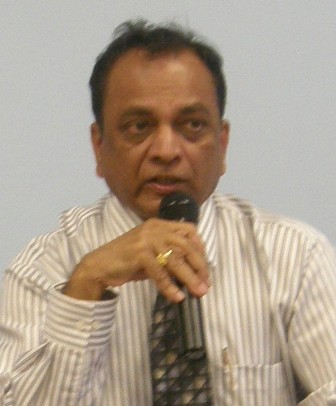
Thousands will have had flu
 (CNS): In the wake of Cayman’s first confirmed death as a result of swine flu, health officials were seeking to reassure the community today that the handling of the pandemic is in line with all WHO guidelines and that people in Cayman are at no greater risk from the virus than anyone anywhere else in the world. Medical Officer of Health Dr Kiran Kumar confirmed that, while there are 60 officially tested and documented cases of swine flu here, there are likely to have been at least 2000 cases as there is no longer a policy of testing everyone.
(CNS): In the wake of Cayman’s first confirmed death as a result of swine flu, health officials were seeking to reassure the community today that the handling of the pandemic is in line with all WHO guidelines and that people in Cayman are at no greater risk from the virus than anyone anywhere else in the world. Medical Officer of Health Dr Kiran Kumar confirmed that, while there are 60 officially tested and documented cases of swine flu here, there are likely to have been at least 2000 cases as there is no longer a policy of testing everyone.
Dr Kumar explained that hundreds of people will have visited private GPs and others would simply have recovered at home without medical intervention. The primary concern now, health officials said, is that those who are in high risk categories ensure they get medical care and that the country continues to monitor the flu for possible mutations. Only those who are sick enough to be in hospital are tested as a matter of course, and the hospital is taking 6 random samples per week, as well, to send to CAREC for surveillance purposes.
Mark Scotland, the Minister for Health, said that while the ministry has been criticised for not doing enough, he reassured the public that staff were in daily contact with the hospital and reacting to advice as quickly as possible as the situation changed.
“We hoped that we would not see any deaths from this virus but sadly, like many countries, we know we now face the same challenges as are occurring all over the world,” he said, adding that any resources required to manage the pandemic would be given to the HSA, but people everywhere were grappling with this flu outbreak.
The minister said the main message remained the same, that people who had flu like symptoms should stay home unless they were from a high risk group, in which case they should seek medical attention. Those include women who are pregnant, the elderly and the very young, those who are obese, people with compromised immune systems, and anyone who has an existing medical condition. Dr Kumar noted that every person who has been hospitalized for H1N1 in Cayman was in a high risk group with a pre-existing medical condition.
Dr Greg Hoeksema said that the problem for health officials now, both locally and globally, was managing the use of Tamiflu and the problems of virus mutation and resistance. The health officials could not say exactly how many people here had been treated with Tamiflu or if the virus was showing any signs of real resistance or mutation, though some tests have been sent to CAREC for that specific purpose. Dr Hoeksema did say there have been a few spontaneous mutations, which he said were different from a whole scale mutation of the virus as it spreads around the world.
With only two drugs that are proving to work on the novel H1N1 strain of flu, the concern of over-use of the Tamiflu is a very real one if the virus does mutate and become more virulent, Hoeksema stated. He said striking the balance between treating those in high risk groups (who had not yet contracted the virus but who had contact with someone who has) with Tamiflu as a preventative measure had to be weighed against the risk of resistance.
Dr Hoeksema said that here in Cayman when the virus first showed itself, the HSA officials had begun by treating the flu aggressively in all those that presented in an attempt to prevent the spread completely. He said that now, however, only patients at high risk of becoming severely ill were being treated. “We have to be judicious with who we choose to treat because of the risk of resistance, especially as we have seen some spontaneous mutating in certain parts of world,” Dr Hoeksema added, noting the difficulty was in the definition of a "high-risk" patient as some young healthy people have become very sick as well.
The message that people who contract the flu, even if they are not feeling too bad, is they should still stay home, not least because they could pass the virus to someone who would be at a higher risk of getting seriously sick if they were to catch the flu.
While no decisions have been made yet about whether schools should re-open as scheduled in September, a consideration in some countries, the health minister said the stay home message was preferable to closing things down. He asked employers to be understanding and allow parents to stay home with sick children, as well sending home anyone who came to work unwell. This, he said, applied to day care centres, summer camps, church services and other public gatherings.

Police net a dozen drunk drivers in George Town
(CNS): Following the arrest of five motorists this weekend for driving while under the influence of alcohol (DUI), the police reported today that the total number of DUI arrests for last week was now twelve people. The latest five arrests were men aged between 23 and 55 who were arrested by uniformed officers in George Town as part of efforts by the police to keep Cayman’s roads safe. Four of the arrests were made Friday night into Saturday morning, while the fifth was made on Sunday evening.
“All road users should be able to move around the Island without fear of encountering a driver who has been drinking,” said Superintendent Adrian Seales, Head of Uniformed Operations. “If you drink and drive you put yourself and others at risk.”
The Royal Cayman Islands Police Service (RCIPS) said that it works hard to ensure motorists obey the rules of the road, which include wearing seatbelts, abiding by the speed limit and not drinking and driving. In 2008 eleven people lost their lives on the road. This year there have been 2 fatal car crashes so far.
“All drivers have a responsibility when they get behind the wheel to ensure their full attention is on the road,” said Seales. “If you drink and drive, your driving is impaired. At worst you are risking your life and the lives of others – at best you are risking your driver’s licence.”
Anyone with information about crime taking place in the Cayman Islands should contact their local police station or Crime Stoppers on 800-8477 (TIPS). All persons calling Crime Stoppers remain anonymous, and are eligible for a reward of up to $1000, should their information lead to an arrest or recovery of property/drugs.

Could machines outsmart us?
 (New York Times): A robot that can open doors and find electrical outlets to recharge itself. Computer viruses that no one can stop. Predator drones, which, though still controlled remotely by humans, come close to a machine that can kill autonomously. Impressed and alarmed by advances in artificial intelligence, a group of computer scientists is debating whether there should be limits on research that might lead to loss of human control over computer-based systems that carry a growing share of society’s workload, from waging war to chatting with customers on the phone. Their concern is that further advances could create profound social disruptions and even have dangerous consequences.
(New York Times): A robot that can open doors and find electrical outlets to recharge itself. Computer viruses that no one can stop. Predator drones, which, though still controlled remotely by humans, come close to a machine that can kill autonomously. Impressed and alarmed by advances in artificial intelligence, a group of computer scientists is debating whether there should be limits on research that might lead to loss of human control over computer-based systems that carry a growing share of society’s workload, from waging war to chatting with customers on the phone. Their concern is that further advances could create profound social disruptions and even have dangerous consequences.

Connecting kids to culture
 (CNS): Nasaria Chollette, Education Officer with the National Museum, is spending the summer sharing Cayman’s cultural heritage with the younger members of the community. Commencing a busy round of cultural activities, Chollete is taking on on the character of “Miss Nas Museum Guru” this week to appear at the Cayman National Cultural Foundation’s (CNCF) summer camp. The camp is part of a Museum drive towards enriching cultural experiences and strengthening their preservation. ‘Miss Nas’ is also scheduled to appear on CITN’s Kidz Stuff programme; she is working on a “Sands of Cayman” exhibition; and she has proposed a “Cultural Cayman” package as part of the induction programme for teachers new to the Islands.
(CNS): Nasaria Chollette, Education Officer with the National Museum, is spending the summer sharing Cayman’s cultural heritage with the younger members of the community. Commencing a busy round of cultural activities, Chollete is taking on on the character of “Miss Nas Museum Guru” this week to appear at the Cayman National Cultural Foundation’s (CNCF) summer camp. The camp is part of a Museum drive towards enriching cultural experiences and strengthening their preservation. ‘Miss Nas’ is also scheduled to appear on CITN’s Kidz Stuff programme; she is working on a “Sands of Cayman” exhibition; and she has proposed a “Cultural Cayman” package as part of the induction programme for teachers new to the Islands.
“The reason I created the ‘Miss Nas’ character is that I wanted to appeal to younger children,” says Chollette, pointing to a felt need to overcome a level of disconnect with Caymanian culture among the younger set. “And I wanted learning to be fun,” she added in a release from the Museum.
At the CNCF summer camp Miss Nas Museum Guru is teaching creative writing with a cultural flair. The camp, which has as its theme ‘Pass it Down’, features local artisans and artists, seeking to pass on traditional arts and crafts, such as crocheting and quadrille, among other indigenous creative activities.
For her role at this week’s CNCF summer camp, Miss Nas is “digging” for stories passed down through families for elaboration by the children. “I am having the students collect stories from their families so they can create their own story books with illustrations,” she says.
For her CITN Kidz Stuff appearance scheduled to be aired later this summer, Miss Nas was filmed at a Colliers, Gun Bay, location, where the cockspur vine is plentiful. The subject of her segment was the seed of the cockspur, known to generations of Cayman’s children as ‘Nickas’. The Cayman cockspur seed is commonly grey, though some rare ones boast an orange yellow hue. The colour and look of the seeds vary from country to country, coming in such exotic patterns as polka dots and stripes in other places.
Traditionally, Nickas have fascinated children because the seeds become hot when stroked in rapid succession against a solid surface. They are also used locally as the pawns in a board game variously called “Wauri” and “Mancala.” “It is really a ‘mind game’, or a ‘strategy game,’ if you will,” explains Chollette, and the game seems to have been passed down in some families over several generations.
Children across the three islands are also busy preparing for the Sands of Cayman project. Miss Nas provided information, which teachers have incorporated into their curricula. Plans are that when schools re-open in September the children will display sand of varioustextures and colours, relating them to specific locations across the Islands. The sand samples will be exhibited in clear, Plexiglas tubes.
As part of another project in preparation for September’s school opening, Chollette has proposed a “Cultural Caravan” as an aspect of the Education Department’s annual teacher induction programme. The new teacher cultural tour package involves a one-day excursion around the Islands, with stops at important cultural and historic sites.
“The aim is also to assist teachers in gaining first-hand insights into Caymanian culture and lifestyles so that they may better understand students and what motivates and affects their classroom responses and behaviours,” says Chollette. She hopes that the programme can be extended to periods throughout the school year to help bridge some of the understandable gaps when new persons come into sensitive roles in the community.
All of these cultural projects are aspects of her efforts on behalf of the Museum to build bridges and effect new understandings and insights into Caymanian culture among a cross-section of the community. This goal will take particular form in the latest project to be launched – that of bringing new life to local folklore by means of the family-story venture at the CNCF summer camp project, she says.
“It’s a simple concept: young people who know their history and are proud of it are strengthened by it and grow into adults who can change the world for the better,” says Chollette. “Rootless people just drift around like coconuts in the sea, fully at the disposal of the waves.”
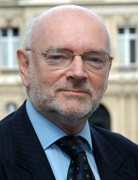
Owens promises white list for Cayman Islands
 (BusinessIFC): Jeffrey Owens, director of the OECD’s Centre for Tax Policy and Administration, has dismissed the possibility that Cayman might not be elevated to the top tier on signature of 12 tax information exchange agreements (TIEAs). "If the government of the Cayman Islands can demonstrate that it has signed 12 high quality tax transparency agreements then it will be admitted to the committed and compliant. The government of the Cayman Islands has said that it wants to sign a network of 30 such agreements. That would be very encouraging,” he said in an interview with BusinessIFC.
(BusinessIFC): Jeffrey Owens, director of the OECD’s Centre for Tax Policy and Administration, has dismissed the possibility that Cayman might not be elevated to the top tier on signature of 12 tax information exchange agreements (TIEAs). "If the government of the Cayman Islands can demonstrate that it has signed 12 high quality tax transparency agreements then it will be admitted to the committed and compliant. The government of the Cayman Islands has said that it wants to sign a network of 30 such agreements. That would be very encouraging,” he said in an interview with BusinessIFC.
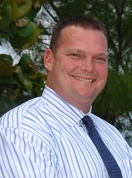
Chamber asks for red carpet
 (CNS): Calling for past differences between the Chamber of Commerce and the new Leader of Government Business, McKeeva Bush, to be set aside, Stuart Bostock, the Chamber President asked for an ‘open for business’ national policy and for red tape to be replaced with the red carpet. Speaking at the Chamber Legislative Lunch last week, Bostock asked the government to demonstrate to the world that Cayman is open for business and called for a review of the public sector.
(CNS): Calling for past differences between the Chamber of Commerce and the new Leader of Government Business, McKeeva Bush, to be set aside, Stuart Bostock, the Chamber President asked for an ‘open for business’ national policy and for red tape to be replaced with the red carpet. Speaking at the Chamber Legislative Lunch last week, Bostock asked the government to demonstrate to the world that Cayman is open for business and called for a review of the public sector.
Bostock took the opportunity to remind the government that investors demand clear, fair and transparent rules and the efficient processing of requests and applications. “We ask government to review the civil service as a matter of priority to determine whether its systems and procedures are suitable for attracting business,” he said.
He added that Cayman’s dynamic free market was under threat from over regulation and bureaucracy. “We must be willing to roll out the red carpet,” Bostock noted and also lamented the detrimental impact crime could have on the economy. He said there was a pressing need to address the escalating level of violence and business crime threatening to destabilize our community. He said the Chamber had worked had over the years with the police to introduce crime stoppers, on fraud prevention and with gun amnesty programmes. He said a new committee had been formed and was in discussion with the new police commissioner about the introduction of a closed circuit television network in public locations and traffic safety cameras.
Speaking directly to members of the business community Bostock called on them to support each other. “During these challenging times it is vitally important for us all to choose Cayman first and keep money circulating in our local economy and government requirements for products and services should be treated no differently.” When people purchased products or services off island, he said they threatened the viability of local businesses and put jobs at risk.
Bostock told chamber members it was time for forward thinking, for people to be progressive and be willing to adapt to change. “Cayman’s size has some real benefits and we can introduce systems and policies much faster than larger economies. The challenge we face as a nation is whether we have the desire and will to change,” he added.
The president who had a further 18 months in post offered the support of the chamber to the LoGB and said he looked forward to attracting new business to the shores of Cayman. Well over 250 members of the business community and government leaders gathered for the Legislative Luncheon where Bush reassured the business community that he would grow Cayman’s economy once again. (See Deficit reaches $75.9M)
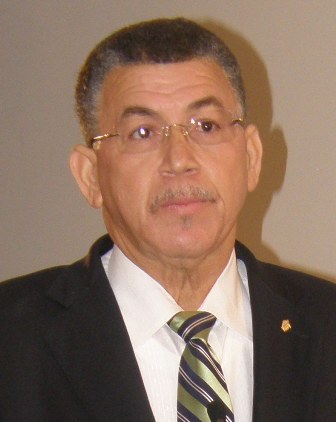
Mac says boards are political
 (CNS): Following the special sitting of the Legislative Assembly last Wednesday when government amended two laws to alter the rules governing two major boards, Leader of Government Business McKeeva Bush has made it clear that as far as he is concerned the boards are political bodies and should be in tune with the administration of the day. Announcing changes at a press briefing to the HSA and CINICO board line ups, he said that boards were effectively the bodies that focused on the day to day running of the country.
(CNS): Following the special sitting of the Legislative Assembly last Wednesday when government amended two laws to alter the rules governing two major boards, Leader of Government Business McKeeva Bush has made it clear that as far as he is concerned the boards are political bodies and should be in tune with the administration of the day. Announcing changes at a press briefing to the HSA and CINICO board line ups, he said that boards were effectively the bodies that focused on the day to day running of the country.
“There has to be changes,” he said. “Why do you think the people put us in office?” he asked rhetorically at government press briefing held on Thursday morning, 23 July. He said that if government doesn’t make changes to the governing of the country, the people would be right to ask why, when given the opportunity by being elected to office, the government had then not made changes in governance.
“Boards do the day to day running of the country. We just make the laws,” Bush said. “Because of that board members are there at the will of government.” He added that it was essentially that those serving on boards are supportive of the government’s policies. Bush also noted that some people believe that once they are appointed to a board they are going to be there forever, but that was not the case.
The leader of government business said that in some cases boards had been changed even where members were UDP supporters, but they may be changed for other reasons. He said it was the government’s prerogative to choose board members for reasons that suited the government’s plans for running the country.
Bush announced that Canover Watson had accepted the position of HSA chairman. “With his financial background he is ideally suited to guide the HSA through these difficult times. Since his appointment as board member in September 2008 he has shown a tremendous commitment to the hospital and has been working diligently to reduce the authority’s deficit,” the LoGB said.
Listing the new directors, he said the following people would serve for a period of one year effective 1 September: Canover Watson as chair, and as deputy chairman, Peter Young. Members will be Tommy Ebanks, Wanda Ebanks, Raquel Solomon, Ryan Walrond and Nina Banks.”
He then said that, significantly, the government had not named the HSA Board Chairman to the CINICO Board, as was previously the practice. “We believe this move will avoid all possible conflicts of interest and will serve both institutions well,” the LoGB said. “Although there are considerable changes to the CINICO Board membership, we want to say that the national insurance company is doing a fine job and financially it is on a good footing. However, we deemed it sensible to bring in new board members that will be able to use their expertise to review CINICO’s organisational structure and service delivery model to further improve its product.”
He said that from 1 July this year Dale Crowley would serve as chair of CINICO with Seamus Tivnan as deputy chairman, and as members John Douglas (reappointed) Dr. Ruthlyn Pomares, Armando Ebanks, Carl Brown, Darlee Ebanks and as ex-officio member the chief officer of the Ministry of Health, Jennifer Ahearn, or her nominee.
These announcements come following legislative changes in the House on 22 July which saw the law amended to enable the number of members on both the ICTA and ERA boards to increase from 4-6 to 8-10 members, for the requisite specialist qualifications to be removed and for the members to be dismissed from the board at the will of government.
The issue of political influence from the previous administration was raised in the Legislative Assembly during the debate by the new UDP government which has made it clear that it wants people on boards who will implement its policies.
The timing of the changes to the ERA has brought criticism from the oppositio, and at Thursday’s press briefing Juliana O’Connor denied that the move was to enable the government to stack the board in order to enable political control over the forthcoming decision by the board, expected sometime this week, on a bid by Jamaica Energy Partners (JEP) to become the first electricity generator to break CUC’s monopoly.
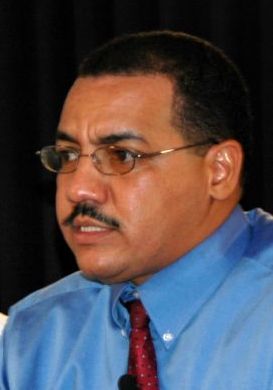
Education law not ready
 (CNS): Although the new Education Law which was passed in the Legislative Assembly in March of this year was suppose to be effective from 1 September 2009, the UDP government has said that it will be advising the governor that its implementation will be delayed. Education Minister Rolston Anglin said that, given the magnitude of the work needed to implement the law, the September date was far too ambitious.
(CNS): Although the new Education Law which was passed in the Legislative Assembly in March of this year was suppose to be effective from 1 September 2009, the UDP government has said that it will be advising the governor that its implementation will be delayed. Education Minister Rolston Anglin said that, given the magnitude of the work needed to implement the law, the September date was far too ambitious.
Despite the fact that the previous minister, Alden McLaughlin, had said at the time the law was passed that many of the policy elements within it were already being implemented by the Department of Education Services, Anglin said there was still a wide range of issues with which professionals and education staff had to be consulted.
“We have a professional standards council and that requires us as a responsible government to ensure those standards receive the necessary thought and consultation,” he added. “With the required underpinning of regulations it is practically impossible to meet the September deadline."
He also said there were issues that had been raised by him when he was in opposition at the time the law was passed by the previous government regarding how truancy issues would be dealt with under the law. From a policy standpoint, he said he may well wish to change the law to enable greater accountability on truancy.
Anglin also spoke more about the situation with the school development projects and noted that he had recently been informed that the new buildings may not even provide enough space for the projected 2000 students that the schools were supposedly built for. The minster described the schools as monuments to excess, and said the People’s Progressive Movement had been irresponsible in the management of the projects and left a crippling financial drain on the country’s resources.
“We needed schools. But did we need schools that will cost us well over $117,573,219.00 in construction costs?” he asked. “Over 10.5 million has been spent on auxiliary costs so far. These are just the hard costs. And then there are the costs we do not know because they have not been quantified: the millions that will be needed for furniture and fittings, maintenance and staffing.”
He again lamented the cost of the kitchen facilities, for which the equipment alone is estimated at $750,000 for each school, and he said although a state-of-the-art "demonstration kitchen" was included, the DoES now says these facilities will not provide them with the stoves and other basic equipment they need to teach home economics and food and catering courses.
“These are the types of excesses you get when you don’t establish a budget, but tell designers and architects to build to meet your "educational vision", a vision of the "future" I am told,” Anglin said.
He noted that the academy concept or school within a school concept was a major contributor to the costs of the new schools. Anglin said that having small groups of students taught together was desirable but he said that the cost was prohibitive.
“Many countries and many of our private schools are not only able to cope with students in numbers greater than 250, but outstrip us time and again in student performance should have been a reality check,” the minister stated.
He said that professionals from within the construction industry have now joined with the project team to look at opportunities for containing or reducing costs but he said there were limits given the stage at which the construction had reached. “We have recently met with the contractors and have presented a cost savings proposal,” Anglin added and the ministry has negotiated a way forward to resolve outstanding claims through conciliation and mediation processes.